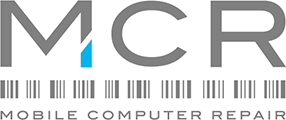When running a business in which barcodes are used, you will find barcode scanners an extremelyefficient way of sharing data, from product to cashpoint and beyond. Certainly, there are hundreds of different models available for you to choose from, with different features and capabilities to support your company. It’s indisputable that barcode scanners populate our shops in massive quantities, but this might leave you wondering: how safe are barcode scanners?
From conspiracies about malware to concerns about radiation, the list of possible concerns about barcode scanners is long. We’ve narrowed down barcode scanners to two types, and the safety issues that might be found with each one, to help determine the safety of barcode scanners.
Laser barcode scanners
Laser barcode scanners are a certain type of handheld terminal, and they use a laser (generally alongside a reciprocating mirror or rotating prism) to scan barcodes. This laser registers both the black bars and the white space in-between. Given the delicate mechanics involved in this process, these scanners are often tough and durable.
The word ‘laser’ concerns many about the safety of these barcode scanners. Aren’t lasers dangerous, after all? This type of barcode scanner typically uses a low-level Class II laser. This means that it is not a skin or materials burn hazard. It is safe for most individuals due to low radiation levels, and the fact that, if this laser is shone towards a person, the response will be typically reflexive only. You might blink, or look away, but that will be it. Nevertheless, a Class II laser can still be a distraction and definitely a glare or flashblindness hazard.
The only major safety precaution you need to take with a laser barcode scanner is this: do not deliberately shine this light at an individual’s eyes, as some may be more sensitive to light, are vulnerable to seizures when exposed to flashing lights, or will wear lenses that intensify the beam.
Overall, we would rate a laser barcode scanner as very safe indeed. As is the case with most laser-based technology, being sensible and responsible with where you direct this scanner is best. The laser classification systems that we use in our current day are highly reliable, and devised with great care. Class II lasers are deemed safe for public use, and that is assured.
Image barcode scanners
An image barcode scanner, also an alternate form of handheld terminal, is more like the camera on your phone. Although this isn’t a perfect analogy, it doesillustrate the differences between image and laser quite well. Unlike laser barcode scanners that scan side to side, an image scanner reads left to right and up to down. This allows image scanners to interpret damaged barcodes, and barcodes displayed on a screen. But what does this mean for safety?
With image barcode scanners, safety issues generally only arise with mechanical or electrical problems. Unlike a laser, an image barcode scanner runs on a different system, with less of a (or no) dependency on laser-based technologies. This means precautions regarding the light are less pressing. Hazards are usually borne from plugging the scanner into an electrical outlet, or if the battery of the image scanner is on the blink. To avoid fire hazards, and certainly the dangers of electrical fire, it’s best to keep a close eye on the integrity of your image barcode scanner. If you notice anything even slightly out of order, there are talented repair technicians available to help.
Recently, with barcode scanners now available as mobile apps, and able to be used as digital coupons or mobile payment, concerns have arisen about malware. 2D barcode technology, as used in image barcode scanners, does come with certain security concerns. It is easy to exploit and replicate barcodes in digital form, and security concerns surrounding the identification process have become apparent.
Nonetheless, these codes can be encrypted and customised so that they cannot be replicated. Consider barcodes that are scanned for concert tickets, for example. Once we know whatproblems exist, we can solve them. Malware unfortunately comes hand in hand with a technological world, but we can defend against it.
When repairs are needed, come to the right place
If you do notice issues with the hardware of your barcode scanner, we would advise you to invest in qualified repair. Timely, high-quality handheld terminal repair can nip problems in the bud before they get out of hand. Encountering troubles with your barcode scanner can be challenging, and not all specialists can handle a range of handheld terminals.
Fortunately, we have a professional in mind for you! Mobile Computer Repair makes barcode scanner repairs simple, with a free assessment and a three-to-five-day turnaround to give you the greatest possible peace of mind.

